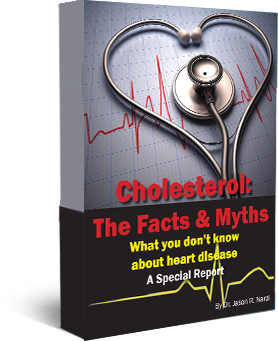The Impact of Menopause on Libido
Menopause is a natural part of the aging process that all women experience as they reach their 50s and 60s. While menopause can bring many changes to a woman’s body, one of the most common concerns is a decrease in libido or sexual desire. The hormonal changes that occur during menopause play a critical role in regulating libido and sexual function. However, emerging research suggests that chronic inflammation and gut health may also impact sexual desire and satisfaction.
Chronic Inflammation and Sexual Function
Chronic inflammation is a process where the immune system becomes activated and produces a sustained low-grade inflammatory response. This type of inflammation has been linked to a range of chronic conditions, including heart disease, diabetes, and cancer. Additionally, research has suggested that chronic inflammation may impact sexual function and lead to a decrease in libido in both men and women.
Gut Health and Sexual Function
 The gut-brain axis is a bidirectional communication pathway between the gut and the brain. The gut microbiome, which consists of trillions of microorganisms that reside in the gut, plays a critical role in regulating this pathway. Emerging research has suggested that the gut microbiome may also impact sexual function. A study of postmenopausal women found that those with a more diverse gut microbiome had better sexual function than those with a less diverse gut microbiome.
The gut-brain axis is a bidirectional communication pathway between the gut and the brain. The gut microbiome, which consists of trillions of microorganisms that reside in the gut, plays a critical role in regulating this pathway. Emerging research has suggested that the gut microbiome may also impact sexual function. A study of postmenopausal women found that those with a more diverse gut microbiome had better sexual function than those with a less diverse gut microbiome.
To support gut health and reduce chronic inflammation, dietary and lifestyle interventions may be beneficial. A diet that is high in fruits, vegetables, whole grains, and lean protein can help provide the necessary nutrients to support gut health and reduce chronic inflammation. In addition, regular exercise, stress management, and adequate sleep can also help support gut health and reduce chronic inflammation.
Strategies for Supporting Gut Health and Reducing Inflammation
Incorporating probiotics and prebiotics into the diet can also support gut health. Probiotics are beneficial bacteria that can help balance the gut microbiome, while prebiotics are fibers that feed the beneficial bacteria in the gut. Foods that are high in probiotics and prebiotics include yogurt, kefir, sauerkraut, kimchi, whole grains, bananas, onions, and garlic. (Watch this video to learn more)
Addressing Underlying Medical Conditions
Finally, it’s important to address any underlying medical conditions that may be impacting sexual function. Chronic illnesses such as diabetes, heart disease, and depression can impact sexual desire and satisfaction. It’s important to work with a healthcare provider to manage these conditions effectively.
Boosting Your Mojo: A Comprehensive Approach.
 In conclusion, while hormonal changes play a critical role in regulating libido and sexual function during menopause, emerging research suggests that chronic inflammation and gut health may also impact sexual desire and satisfaction. A comprehensive approach that includes addressing these factors may be beneficial for improving sexual function and overall quality of life during and after menopause. By making small changes to your diet and lifestyle, you can help support gut health, reduce chronic inflammation, and boost your mojo.
In conclusion, while hormonal changes play a critical role in regulating libido and sexual function during menopause, emerging research suggests that chronic inflammation and gut health may also impact sexual desire and satisfaction. A comprehensive approach that includes addressing these factors may be beneficial for improving sexual function and overall quality of life during and after menopause. By making small changes to your diet and lifestyle, you can help support gut health, reduce chronic inflammation, and boost your mojo.
If you’re experiencing a decrease in libido during menopause or have concerns about your gut health and chronic inflammation, we’re here to help. At Canopy Natural Medicine, we offer holistic and individualized treatment plans that address the root cause of your health concerns. Our team of experienced practitioners can help you optimize your gut health and reduce inflammation, which may help improve your sexual function and overall quality of life.
To schedule a consultation with one of our practitioners, please give us a call at 907-789-9549. We look forward to working with you to support your health and wellbeing.
Resources:
- Jara, C., Luque, G. M., & Ramírez, V. D. (2021). Inflammation and Sexual Dysfunction: An Overview. Journal of Sexual Medicine, 18(4), 631-638.
- Jiang, H., Ling, Z., Zhang, Y., Mao, H., Ma, Z., Yin, Y., … & Chen, W. (2020). Altered fecal microbiota composition in patients with major depressive disorder. Brain, Behavior, and Immunity, 88, 870-878.
- Harvard Health Publishing. (2019). The Gut-Brain Connection. Retrieved from https://www.health.harvard.edu/diseases-and-conditions/the-gut-brain-connection
- National Institute on Aging. (2021). Menopause. Retrieved from https://www.nia.nih.gov/health/menopause
- Mayo Clinic. (2021). Menopause. Retrieved from https://www.mayoclinic.org/diseases-conditions/menopause/symptoms-causes/syc-20353397
- WebMD. (2021). What Is Menopause? Retrieved from https://www.webmd.com/menopause/guide/guide-perimenopause



